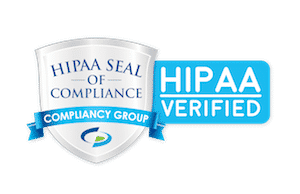
Eye allergies, also known as allergic conjunctivitis, are fairly common and occur when the eyes come into contact with a substance that your immune system perceives to be harmful. This substance is known as an allergen. When an allergen reaches the eyes, the body produces chemicals called histamines to protect you. It’s the release of these histamines that causes the symptoms that are commonly associated with an allergic reaction. Living with eye allergies can be frustrating, but there are things that you can do to minimize the likelihood of you experiencing a reaction. There are also treatments that can alleviate your symptoms.
What Causes Eye Allergies?
Every person is different and allergens that affect one person may not affect another. Some of the most common causes of eye allergies include:
Pollen (all types)
Dust
Mold spores
Animal dander
Cleaning chemicals
Smoke (bonfire or tobacco)
You should always work with your eye doctor to try and determine the cause of your eye allergies. This is because the best way to prevent eye allergies is to avoid the allergen that causes them. When you know that your allergy is caused by a specific trigger, for example, the fumes from cleaning chemicals, you can take proactive steps to avoid them. In this instance, you could wear protective goggles when cleaning, which will prevent the allergens within the fumes from reaching the surface of your eyes.
Prevention & Treatment Of Eye Allergies
Avoiding the trigger that causes your eye allergy is the most obvious way to prevent experiencing symptoms, but there are other things you can also do to minimize your risk of having an allergic reaction and to treat any symptoms that may occur if you do.
Wash Your Hands Regularly
Our hands are one of the primary ways in which allergens are picked up and enter our bodies. Good hand hygiene is essential all the time to avoid viruses and other harmful microorganisms but washing your hands regularly can also reduce your risk of having an allergic reaction.
Don’t Touch Your Eyes
Most of us subconsciously touch our eyes and face multiple times each day. However, if we have picked up harmful bacteria or allergens on our fingers, we can transfer these to our face and eyes if we touch them, giving them a fast track into our body where our production of histamines will kick in to try and fight them. If you have irritated eyes as a result of touching them, it can be tempting to rub them more to try and ease the irritation. However, doing so can worsen your symptoms as rubbing your eyes will encourage the release of even more histamines.
Use Artificial Tears
As their name suggests, artificial tears are a manmade solution designed to replicate natural tear film. By increasing the level of tear film being produced by our eyes, it may be possible to flush out many of the allergens that are causing your allergic reaction. Artificial tears should be administered as per the instructions that come with your specific variety.
Try Antihistamines
As you may have guessed, antihistamines counteract the release of histamines to keep your allergic reaction under control. Antihistamines are available in various forms, including eyedrops and orally administered tablets. Your eye doctor will be able to advise you which is the best antihistamine based on your medical history.
Steroid Medication May Be Recommended
Steroid medications should never be taken longer-term or without the appropriate medical supervision, but they can be very helpful, taken short term, in reducing the symptoms of eye allergies. They are usually available as an eye drop that is administered once each day, and it is essential that you follow the guidance provided by your eye doctor.
If All Else Fails, Immunotherapy Can Help
Immunotherapy is usually the last treatment option for patients with severe allergies and is recommended if no other solutions are able to get your symptoms under control. Immunotherapy is usually administered via injection of a substance that prevents your immune system from going into overdrive.
If you are concerned about eye allergies and would like more information, contact Eye Care North at 480-781-4446 to schedule an appointment.





































































































































































































































































